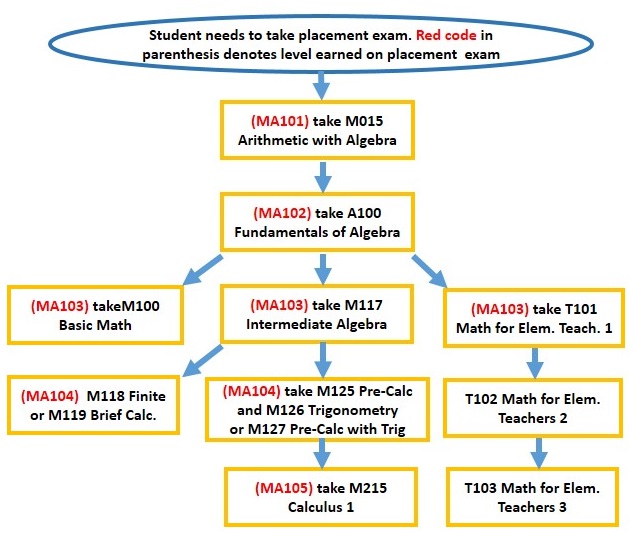College of Arts and Sciences
Departments
Mathematics and Actuarial Science
About the Department
The Department of Mathematics serves students interested in one or more of the following:
- Applications of mathematics to the sciences, business, public and environmental affairs, actuarial science, etc.
- Mathematics teaching at any level
- Graduate study in mathematics
- Mathematical research
Learning Outcomes
Goal 1. Use mathematical models such as formulas, graphs, and tables to draw inferences.
Goal 2. Represent mathematical information symbolically, visually, numerically, and verbally.
Goal 3. Use arithmetic, algebraic, geometric, logical, and / or statistical methods to model and solve real world problems.
Students in college-level mathematics courses are generally assumed to have completed two years of high school algebra. All newly enrolled students should take the mathematics placement test to determine their skill level and mathematics class they could enroll in.
Placement testing and counseling are available through the Office of Admissions.
The order in which courses should be taken is shown in the tree diagram which is available at http://www.northwest.iu.edu/math/classes/flow-chart.htm.

- MATH-A 100 and MATH-M 117. For students who lack the background in algebra for freshman-level college mathematics.
- MATH-M 100. Terminal course for students in the humanities and the Allied Health sciences. Fulfills the Group I mathematics requirement in the College of Arts and Sciences.
- MATH-M 118, MATH-M 119. May be taken in either order. Primarily for majors in business and the social sciences.
- MATH-M 125-MATH-M 126, MATH-M 127. Preparation for calculus. Need not be taken by students with a strong background in algebra (including analytic geometry and logarithms) and trigonometry may be taken concurrently.
- MATH-M 215 Calculus. Intended for students majoring in mathematics and the sciences. Recommended as a strong elective in mathematics for others.
In addition to mathematics courses, all majors are strongly encouraged to study another discipline, in depth, which uses mathematics. Courses in physics, chemistry, computer science, and business are recommended. Students must also complete the general requirement of the College of Arts and Sciences.
Mathematics introductory courses include
- MATH-A 100
- MATH-M 117
Courses for nonmajors include
- MATH-M 015
- MATH-M 100
- MATH-M 110
- MATH-M 111
- MATH-M 118
- MATH-M 119
- MATH-M 125
- MATH-M 126
- MATH-M 127
- MATH-K 200
- MATH-K 300
- MATH-T 101
- MATH-T 102
- MATH-T 103
- MATH-T 490